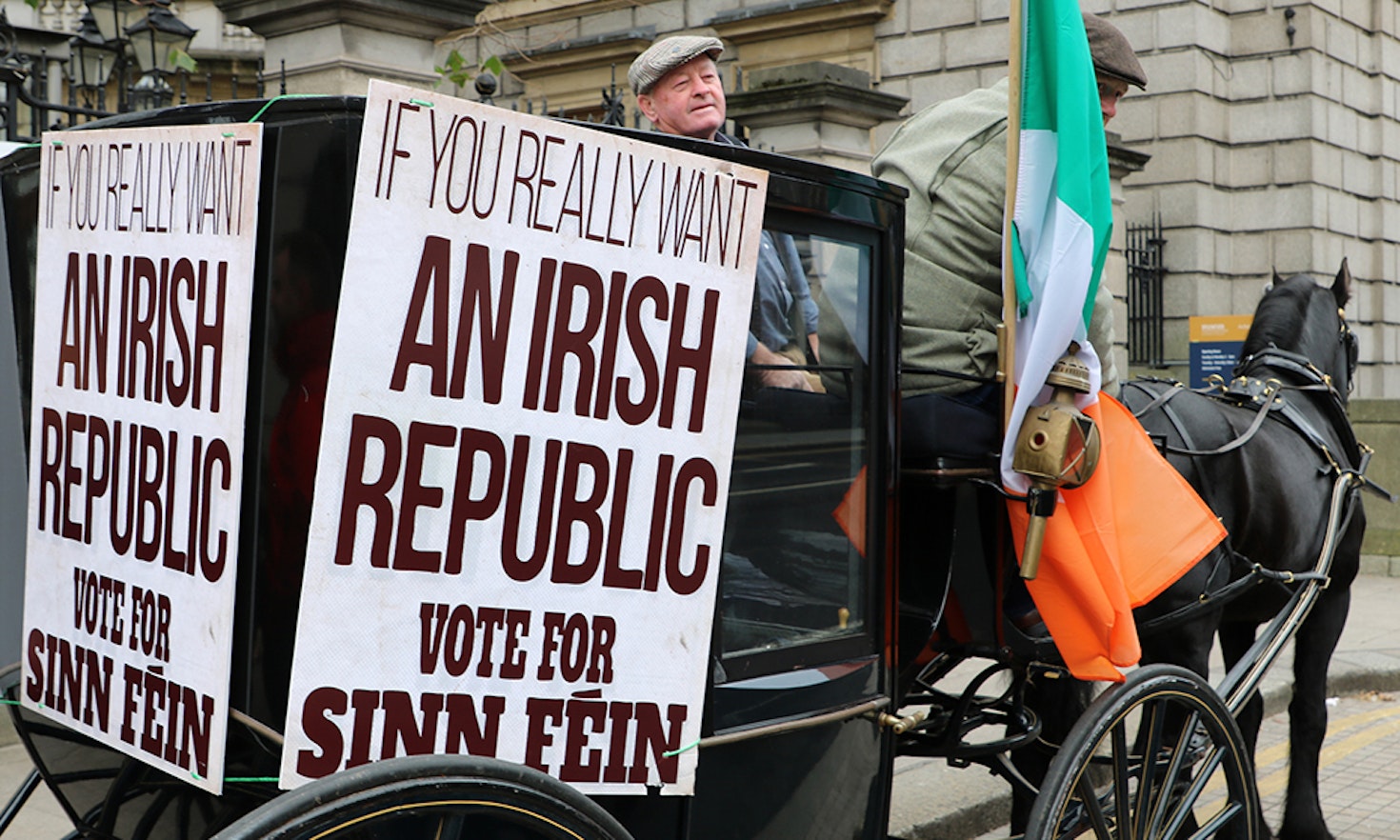Half in, half out? Sinn Féin’s “all-Ireland” strategy in the European Elections

Elections to the European Parliament are often criticized for not being truly “European”. They are fought by national parties who tend to mobilize on national issues in nationally-defined constituencies. Yet during the last parliamentary term, one party comprised MEPs from two different member states: Sinn Féin (SF), the party once linked to the Irish Republican Army’s (IRA) armed struggle, has traditionally fielded EP candidates in Ireland, as well as in Northern Ireland. In line with its aspiration to achieve the political unification of the island, SF presents itself as a unitary Irish party – even if one of its MEPs has officially been elected in a UK constituency. The party’s presence in two national EP delegations is, however, but one of the particularities that mark its oftentimes contradictory approach to Europe. These discrepancies have been accentuated with the prospect of Northern Ireland’s withdrawal from the EU, and the risk of a “hardening” border on the island of Ireland.
SF’s ideological position on Europe has changed significantly as part of the party’s wider transformation in the last 30 years. In the 1980s, when the party was committed to establishing a united, socialist Ireland through violent means, it rejected EEC membership in both parts of the island. This rejection was based on the perception of the EEC as a union of colonial powers that would undermine Ireland’s national sovereignty. As SF turned away from violence as part of the peace process in the 1990s, its principled aversion to the EU also gave way to what it termed “critical engagement” with Europe. This position is marked by continued criticism of the EU’s political and economic underpinnings, and the rejection of further integration. Yet the party has come to endorse a range of specific EU policies, and – above all – the facilitating effects that EU integration has had for cross-border cooperation between Ireland and Northern Ireland. On this basis, SF vehemently opposes Brexit and the possible hardening of the Irish border. While the party pursues this policy as part of its “all-Ireland” agenda, the vastly different political conditions in the Republic and the North constrain the uniformity of SF’s strategic approach to Europe.
In Northern Ireland, SF co-headed the region’s power-sharing executive between 2007 and 2017. In this governmental position, the party was incentivized to take pragmatic positions on European matters, not least to ensure the continuation of financial support for Northern Ireland’s peace process. Disagreement between SF and its counterpart in the executive, the Democratic Unionist Party (DUP), however, regularly complicated the regional government’s cooperation with the EU. These tensions were unequivocally exposed when the two parties took diametrically opposed positions on Brexit. Only six months after the Brexit referendum, the power-sharing arrangement between them collapsed, and Northern Ireland’s devolved institutions were suspended. With no regional institutions in place, and SF refusing to take its seats in Westminster, Northern SF has since been restricted to lobbying external decision-makers to ensure the continuity of close political and economic ties between Northern Ireland and the South in the post-Brexit era.
In the Republic of Ireland, where the status of the Irish border had ceased to be a polarizing issue in recent decades, SF used to be a barely relevant fringe party. This changed following the post-2008 financial crisis, which inter alia led to a triplication of Ireland’s unemployment rate between 2007 and 2012. The deteriorating socioeconomic conditions resulted in large-scale political realignment and helped SF obtain close to 20% of first-preference votes in the 2014 EP election. Since then, SF has firmly established itself as the third biggest party in the Republic. There, the party owes its rise largely to its populist anti-austerity and Eurosceptic rhetoric. Even in light of Brexit, a too pragmatic position on the EU would undermine SF’s “winning formula” in that part of the island. However, too harsh critique of the EU would subvert the party’s opposition to Brexit and its efforts to safeguard Europe-sponsored cross-border integration between Northern Ireland and the South.
This strategic dilemma is further exposed by SF’s calls for fundamental reform of the EU on the one hand; and its support for the Irish “backstop”, designed to tie post-Brexit Northern Ireland to the EU in its current form on the other. It is also apparent from the contrast between the party’s recurrent criticism of the Irish government’s record at the EU level, and concerted effort by SF and the government to convince the EU-27 to honour the unique circumstances on the island of Ireland in the Brexit talks.
SF is thus to be expected to send out mixed messages in this year’s European election campaign. Given Northern Ireland’s imminent departure from the EU, however, it seems unlikely that SF will be able to pursue its all-Ireland agenda in Strasbourg and Brussels during the next parliamentary term.
 | Patrick Utz is a PhD researcher in Politics at the University of Edinburgh. His research focuses on nationalism, political parties and European integration. Before moving to Edinburgh, Patrick studied at the University of Vienna and worked for the Austrian Broadcasting Corporation (ORF). He is a keen marathon runner and an admirer of Thomas Bernhard. And yet, he also enjoys a decent glass of wine in good company. |
Citation
This content is licensed under a Creative Commons Attribution 4.0 International license except for third-party materials or where otherwise noted.









